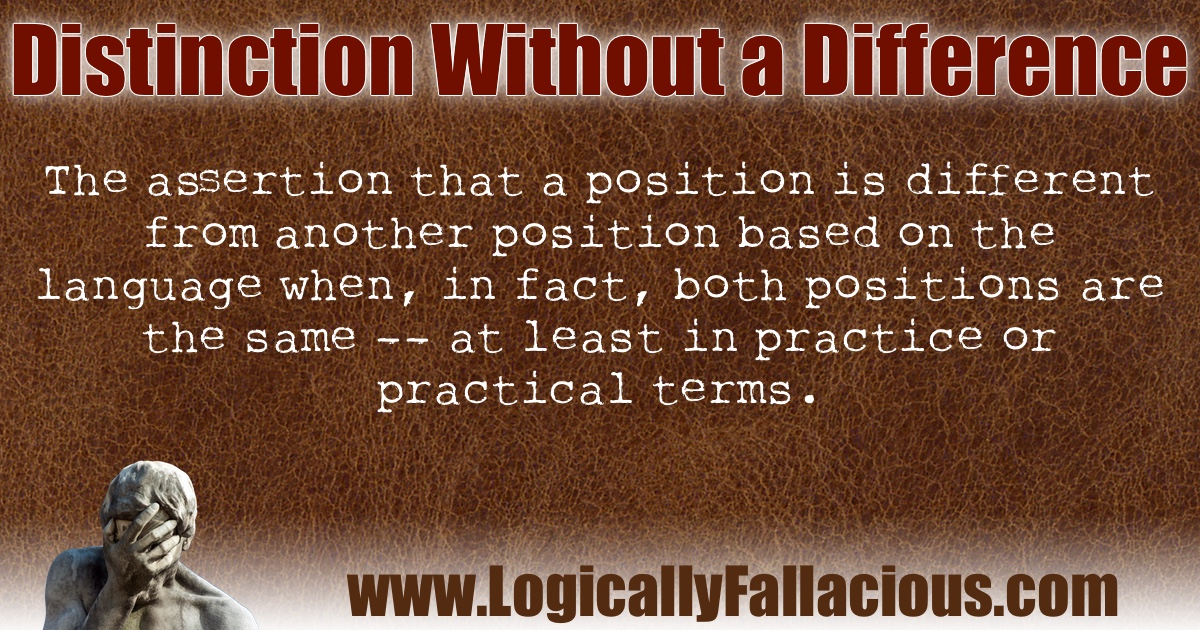Description: The assertion that a position is different from another position based on the language when, in fact, both positions are the same -- at least in practice or practical terms.
Logical Form:
Claim X is made where the truth of the claim requires a distinct difference between A and B.
There is no distinct difference between A and B.
Therefore, claim X is true.
Example #1:
Sergio: There is no way I would ever even consider taking dancing lessons.
Kitty: How about I ask my friend from work to teach you?
Sergio: If you know someone who is willing to teach me how to dance, then I am willing to learn, sure.
Explanation: Perhaps it is the stigma of “dancing lessons” that is causing Sergio to hold this view, but the fact is, someone teaching him how to dance is the same thing. Sergio has been duped by language.
Example #2:
We must judge this issue by what the Bible says, not by what we think it says or by what some scholar or theologian thinks it says.
Explanation: Before you say, “Amen!”, realize that this is a clear case of distinction without a difference. There is absolutely no difference here because the only possible way to read the Bible is through interpretation, in other words, what we think it says. What is being implied here is that one's own interpretation (what he or she thinks the Bible says) is what it really says, and everyone else who has a different interpretation is not really reading the Bible for what it says.
Exception: It is possible that some difference can be very minute, exist in principle only, or made for emphasis, in which case the fallacy could be debatable.
Coach: I don’t want you to try to get the ball; I want you to GET the ball!
In practical usage, this means the same thing, but the effect could be motivating, especially in a non-argumentative context.
Tip: Replace the phrase, “I’ll try” in your vocabulary with, “I’ll do my best”. While the same idea in practice, perceptually it means so much more.
